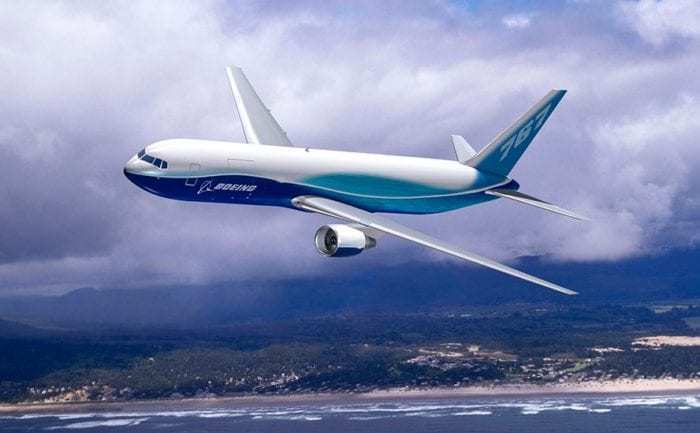Boeing has shelved all of its plans for the ‘797 NMA’ and has been asked to return to the drawing board by its new CEO. This is surprising as the Boeing 797 was rumored to be on the verge of announcement only a year ago, to now a concept that needs to be rebuilt from scratch.

What was the Boeing 797?
The Boeing 797 was designed as an aircraft to solve the ‘middle of the market’ problem.
The middle of the market is defined as routes that need a passenger capacity from 200-300 across a medium-haul distance. This market might include routes like Sydney to Melbourne, in which a Boeing 737 or Airbus A320 is too small to effectively meet market demand, and a long haul Airbus A330 or Boeing 777 is too big.
Thus Boeing envisioned a cheap aircraft, that could carry 220-270 passengers in a wide-body twin-aisle configuration to fill this market niche.
Advertisement
Featured Video:

The aircraft would have been cheap enough (around $100 million USD at list prices) that it would be a good workhorse for any fleet.
The rumored specs of the two Boeing 797 models were:
- 797-6 – able to seat 228 passengers and fly a range of 4,500nm (8,300km)
- 797-7- seating 267 passengers and fly a range of 4,200nm range (7,700km)
The aircraft would have also been a replacement for both the Boeing 757 (Although the 737 MAX 10 was also a good 757 replacement) and the Boeing 767.
Many airlines appeared interested in the type, such as Delta Air Lines and Qantas, but they had been unable to make an order at this time.
In fact, up till this week, a ‘major supplier’ to Boeing for the NMA 797 program still had a meeting with the aerospace builder, when it was abruptly canceled.
Why has Boeing restarted the project?
Essentially, the market has changed.
“Since the first clean sheet of paper was taken to it, things have changed a bit … the competitive playing field is a little different,” Boeing Chief Executive Dave Calhoun told Reuters journalists on a conference call on Wednesday.
“We’re going to start with a clean sheet of paper again; I’m looking forward to that,”

“[The CEO] has asked the team to do an assessment of the future market and what kind of airplane is needed to meet the future market,” – Boeing Spokesperson to Reuters
There are two major situations that have occurred in the last year that they may be referring to.
The first is the Boeing 737 MAX disaster. The problems with the Boeing 737 MAX go far beyond the MCAS problem and lie in the actual engineering of the aircraft. The plane is not aerodynamic without an autopilot system thanks to the much too forward engines.
Boeing has had to deal with the fallout of this scenario for the last year and put other new jet development programs like the Boeing 777X on the backburner.
Another issue is that of a new rival aircraft that does what the Boeing 797 intended to do. Airbus launched the Airbus A321XLR aircraft back at the Paris Air Show and it has snapped up orders from many different airlines. This aircraft can fly an incredible range and seats up to 220 passengers.

Airbus also offered the A330-800neo for airlines needing an aircraft for the 270-300 seat range, but it has so far not been very popular.
With this news, Boeing will be looking at around five years to bring a new aircraft design to market (just the design, then they have to build and test it). But with the airframe builder asking for $10 billion USD in loans, do they have an appetite to design a whole new expensive aircraft?
What do you think of this news? Why is the Boeing 797 being delayed? Let us know in the comments.
